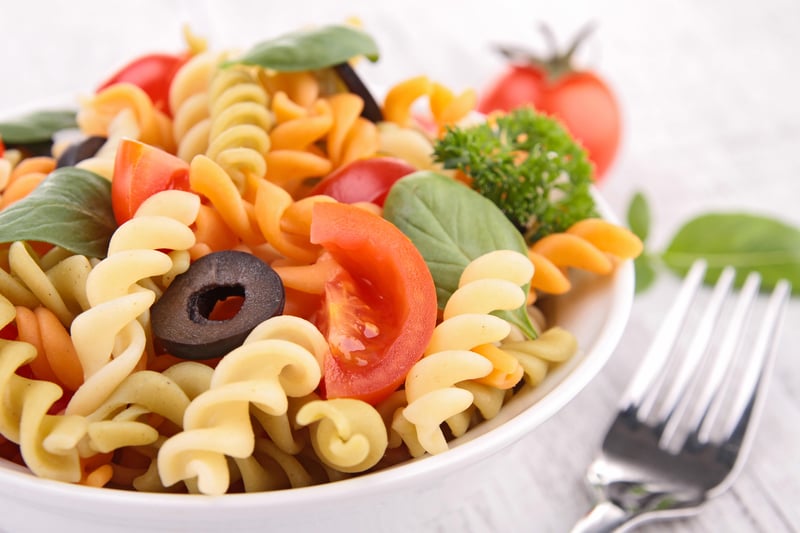Call to schedule your appointment!
Support your immune system with Vitamin D, Zinc, and Vitamin C. We offer a variety of supplement brands and can special order items for next-day delivery!
Are you considering changing your Medicare Drug plan for 2025?
Many plans may not be available in your area, please give us a call to schedule a Medicare Plan Comparison review to make sure you get the best plan for you!
Get Healthy!

- By Sydney Murphy HealthDay Reporter
- Posted August 1, 2022
Tweets Show Americans Eating Healthier in Pandemic
Whether it's fact or brag, tweets suggest people ate healthier during COVID lockdowns and restaurant closures, a new study finds.
Tweets about healthy foods rose 20% between May 2020 and January 2021, while those about fast food and alcohol dropped 9% and 11%, respectively, researchers found.
"Our findings provide insight into the impact of public health interventions on food and alcohol consumption during the pandemic, and reinforce the idea that when it comes to influencing health behaviors, one's built environment matters," said lead author Mark Hernandez, a researcher at MIT Lincoln Laboratory in Boston.
The switch from fast food to salad or an apple was just one of the dietary changes that people claimed to make during the pandemic's first year.
Although lockdowns and restaurant closures significantly altered how people got food and alcohol, the analysis suggests that some Americans deliberately embraced healthier eating habits.
The study -- recently published in the journal Patterns -- also found links between behavior and proximity to grocery or liquor stores.
People who lived in areas with more liquor stores per capita were more likely to tweet about alcohol, the study found. Conversely, folks who lived in areas with more grocery stores per capita and who were able to spend more time at home tweeted more about healthy foods and less about fast food and alcohol than before the pandemic.
The authors said their analysis fills in gaps from earlier research, which primarily relied on conventional survey data.
"Twitter provides a window into people's day-to-day attitudes and behaviors that surveys may struggle to capture," said co-author Nina Cesare, a postdoctoral associate at Boston University School of Public Health.
"In the context of diet, food diaries and self-reported eating habits are notoriously prone to response bias. Unsolicited reports of food consumption on Twitter may more accurately reflect food preferences and habits," she said in a BU news release.
Forty-eight states and Washington, D.C., saw an increase in tweets about healthy foods. The exceptions were Massachusetts and Montana, where those tweets were down 9.3% and 3.4%, respectively.
The biggest increases in tweets about healthy foods were in Wyoming (up 62.1%), Vermont (up 57.4%) and Washington state (up 46.5%). Fast-food tweets fell 68% in Wyoming and 69.4% in Rhode Island.
States with the largest falloff in alcohol-related tweets were Alaska (down 39.7%), Hawaii (down 38.7%) and Vermont (down 37.6%). Six states saw an increase in alcohol-related tweets, with South Dakota recording the biggest jump (30.6%).
During the pandemic, "salad," "apples," "chicken," "corn," "eggs" and "peanut butter" were among frequently tweeted healthy food terms. The most frequently used terms for fast food and alcoholic beverages were "McDonalds," "tequila," "Taco Bell," "Starbucks," "Chick-Fil-A," "KFC," "Chipotle," "beer," "wine," "vodka" and "mimosas."
Researchers said the new findings show the need for policies to increase access to healthy food options, particularly in areas with few grocery stores.
"Policies could help incentivize new grocers to open and stock affordable, fresh foods, or focus on investing in local food economies and bolstering food access programs," Hernandez said in the release. "They could also promote conditions where essential workers have more time and resources to access and prepare healthy foods."
Another study, published online in February, took a look at the pandemic-era diet and drinking habits in various countries.
More information
The U.S. National Library of Medicine has a guide to healthy snacking.
SOURCE: Boston University School of Public Health, news release, July 26, 2022





